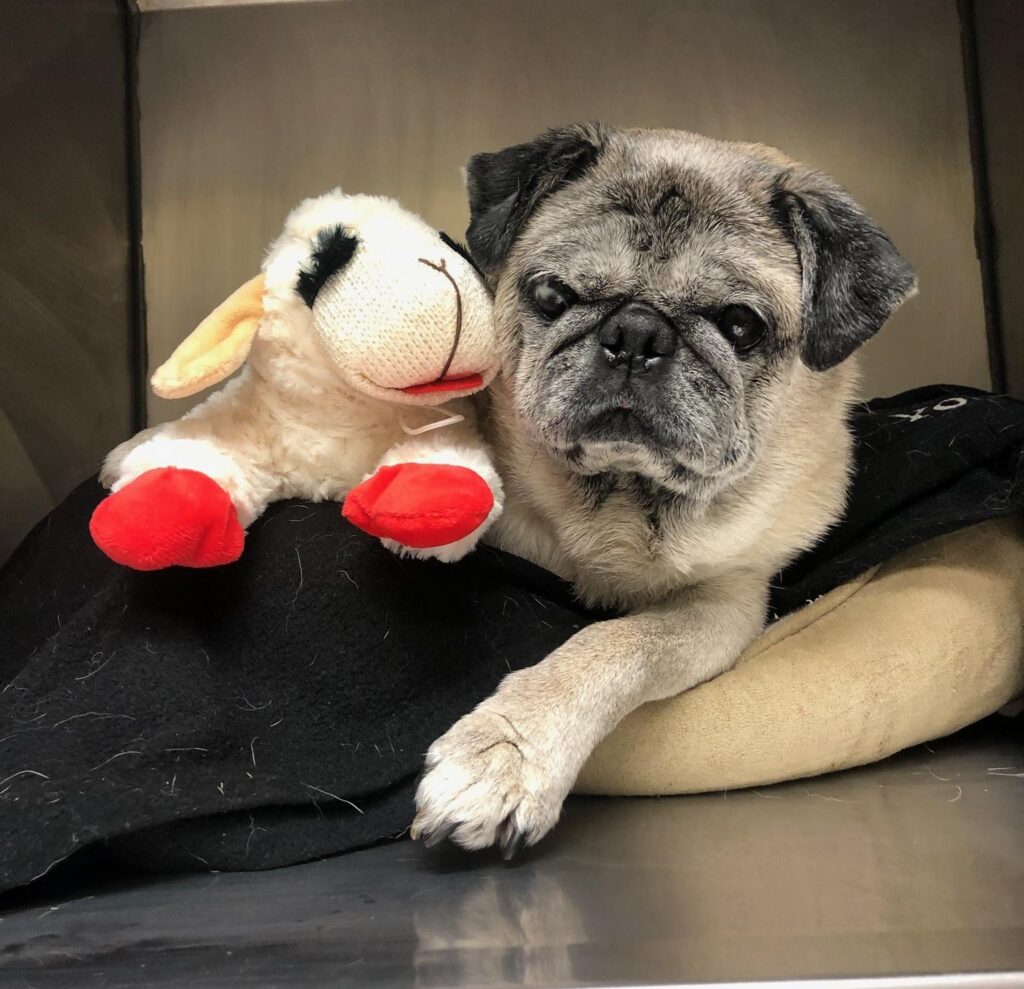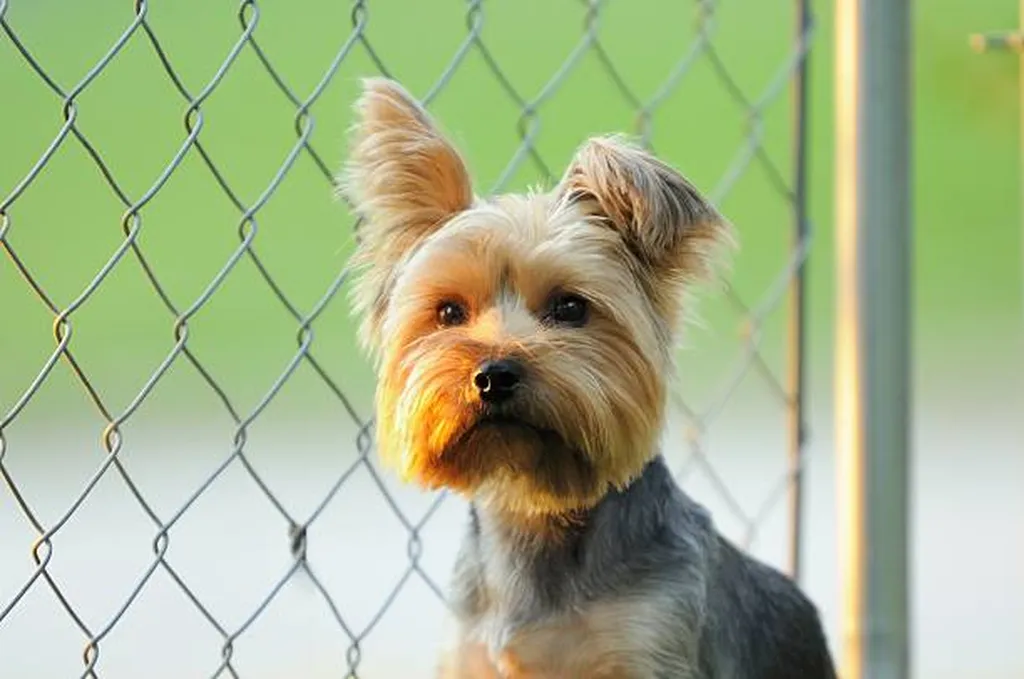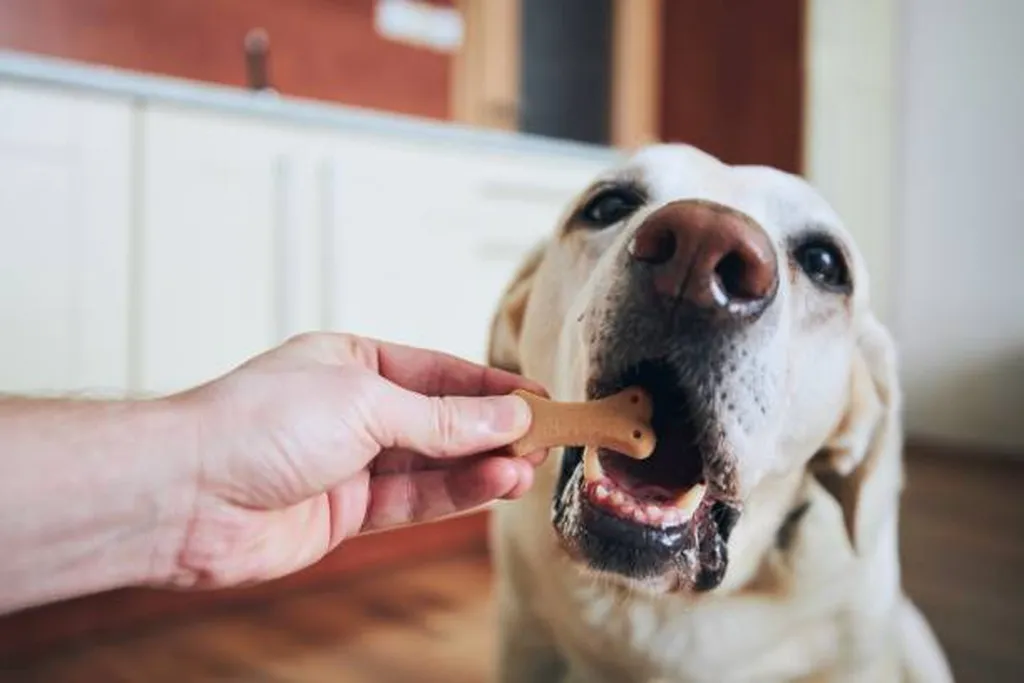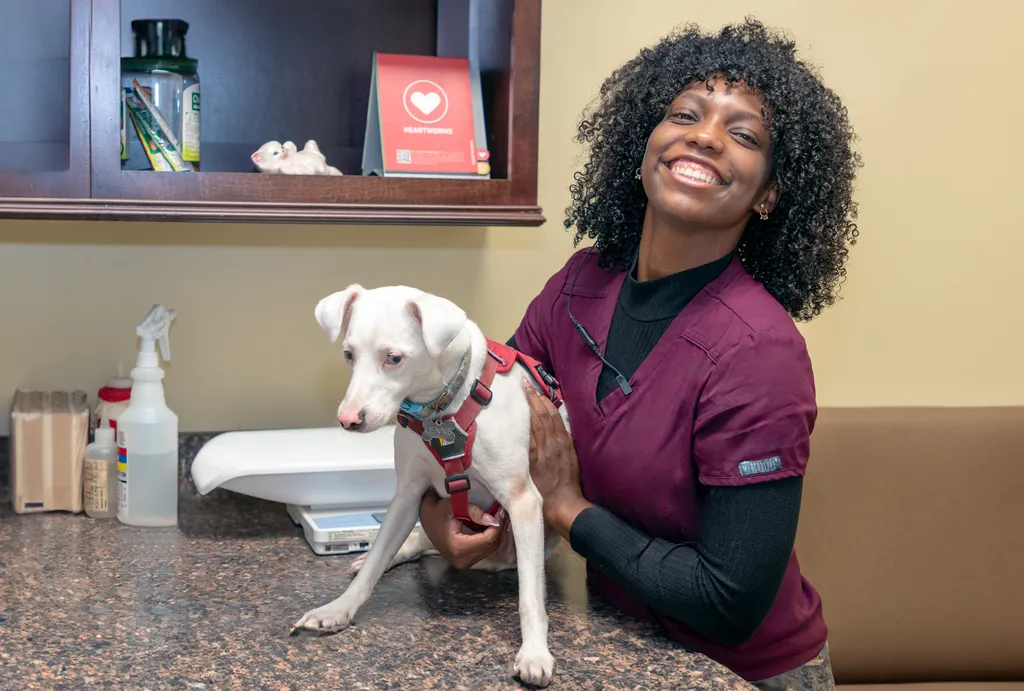One of the viruses that we vaccinate every puppy for is Canine Parvovirus (CPV). Parvovirus, more often referred to as just Parvo, is a virus that affects the gastrointestinal tract of puppies and young dogs. This disease primarily affects those who have not been vaccinated, but improper vaccinations and a lack of boosters can also lead to your dog or puppy contracting the disease.
Canine Parvo Prevention
It is important that your dog or puppy is vaccinated appropriately in order to prevent the disease. AAHA (American Animal Hospital Association) recommends vaccines every three to four weeks starting at 6 to 8 weeks and boostering every three to four weeks until your pet is over 14 weeks old. Older puppies without vaccine history should be given a vaccine when you initially bring him in and boostered three to four weeks later.
Canine Parvo Symptoms
So, what does Parvovirus do? While it primarily affects the gastrointestinal tract, Parvovirus affects how your pet fights off the virus as well.
The first signs of Canine Parvo generally start out with signs of lethargy and a decreased appetite. Pretty standard for any illness, it seems fairly harmless. Depending on the pet, later that day or even a few days later, vomiting and diarrhea starts. Eventually the diarrhea becomes bloody and has a very distinct, putrid smell to it. At this point, the puppy or dog is extremely depressed and lethargic.
These are the most obvious parvo symptoms. On the inside, however, Parvo is doing more damage. It attacks the bone marrow which causes the white blood cell production to decrease or even cease. White blood cells are pertinent for fighting infection. While it causes the vomiting, diarrhea, lethargy, and decreased white blood cells, it also causes hemorrhaging in the intestinal tract.
If left untreated, the puppy dies due to the infection and dehydration that it cannot fight off, not from the actual Parvovirus. This is why treatment is essential for survival. While you cannot treat the virus, you can at least treat for the infection and dehydration that Parvo causes.
After having a pet with Parvovirus, it is important that you do not introduce any new puppies or dogs to your house or yard. Studies have shown that Parvo can last in the environment for six months to years. Because it is so resilient in the environment, it is best to not introduce new pets into the area.
Puppies and young dogs are great to have. They are fun to watch and be around, and they are always happy. To keep them happy, we need to take care of them, give them proper nutrition, and vaccinate for common puppy diseases.



